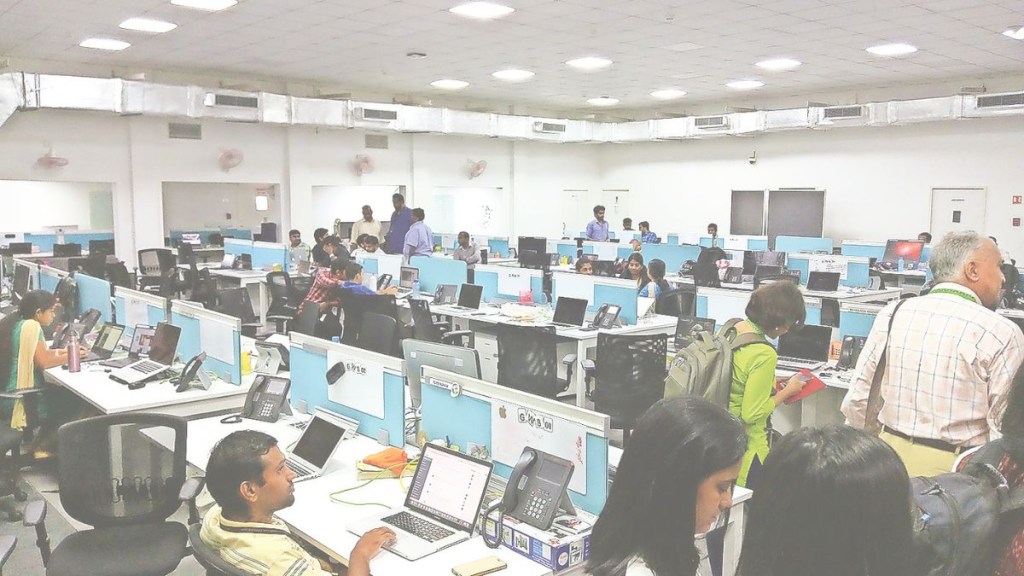When Zoho started around three decades ago, IT services were the norm. The company built products from Chennai and firmly believed its engineers and designers could not just execute but innovate, creating software that stands shoulder to shoulder with the best in the world. Today, Zoho serves over 130 million users in more than 150 countries who rely on its comprehensive suite of business applications. “What makes this meaningful is how we built it – entirely from India, without external funding, grounded in long-term thinking,” said Mani Vembu, CEO, Zoho.
There’s Tally too, the accounting software that is simplifying complex accounting tasks for small and large enterprises – both in India and globally. “We have had the privilege of serving the MSME ecosystem in the country and helping them automate their businesses that have erstwhile been very difficult,” said Tejas Goenka, managing director, Tally Solutions. “To do this, we needed to create fundamental technologies and innovate for the space that MSMEs operate in. This innovation has allowed us to serve the same community globally over the last several years. Today, we are proud to serve just under 3 million businesses with our product,” he pointed out.
Other than Zoho and Tally, there are very few exceptions of any significant made in India innovation in the IT products space that can be judged as world-class. While the Indian tech talent is recognised globally; some Indians even run the Googles and Microsofts of the world, there is a pressing need for the homegrown founders to build at global scale, a fact highlighted by Perplexity CEO Aravind Srinivas, a rising star in Silicon Valley who is challenging Google’s search monopoly.
For too long, India’s IT sector has been totally dependent on services for its growth. “India should now become an IT product nation – to create globally scalable products, build strategic resilience and reduce import dependence, and leverage the strong talent pool for innovation beyond services,” said Ajai Chowdhry, co-founder, HCL. “We should be very clear that our future lies in being technology sovereign. We need to identify 100/500 products for the next 5/10 years and go after designing and manufacturing these here.”
How will this shift from a service-based economy to one based on original product design and creation happen? According to Bharat Bhasker, director, Indian Institute of Management, Ahmedabad, a product nation focuses on innovation, research and development (R&D), and the creation of intellectual property. It emphasises on manufacturing products which can be sold globally, thus creating a strong boost for their exports and economic growth.
“For India to become a product nation, we must focus on increasing investments in R&D, leveraging India’s momentum in entrepreneurship, strengthening infrastructure and large-scale manufacturing, simplifying regulations and policies, and developing robust supply chains,” Bhasker said. “Upskilling the workforce with new-age skills in areas of AI, robotics, and automation is equally important; this will ensure that India remains competitive in a tech-driven global economy.”
Rajesh Nambiar, president, Nasscom, said, “We must move from a mindset of scale to one of scientific depth and design differentiation. The path ahead demands an R&D-first, IP-forward strategy – one that focuses less on competing head-to-head with global incumbents and more on building differentiated platforms that own critical layers of the AI stack. Government funding, venture capital, and academia must align to convert lab research into scalable innovation, supported by long-term patient capital for deeptech and AI ventures.”
Interestingly, software-as-a-service (SaaS) is giving rise to a robust product ecosystem, with companies like Zoho, Tally, Icertis, Freshworks and Capillary being seen as success stories. In fact, Zoho was among the first few companies to bet on SaaS, and invested in building the critical know-how. “We are also investing in developing similar deep-tech capabilities in other areas such as healthcare, semiconductors, robotics, etc. We believe that more and more companies need to invest in building these deep-tech capabilities in India to make it a product nation,” said Vembu.
To nurture the ecosystem further, a few critical components can help – first, recognise software products as a category on their own; second, encourage risky R&D through tax incentives, allowing Indian companies to think long term and encouraging true deep technical innovation. “With our talent, technology base, and growing digital adoption, India can shape products that not only power our own development but also contribute meaningfully to global progress,” Goenka summarised.

